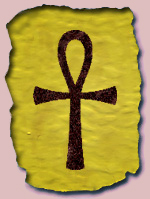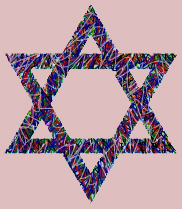Chapter 6
- There is an evil which I have seen under the sun, and it is common among men:
- a man to whom God hath given riches, wealth, and honor, so that he wanteth nothing for his soul of all that he desireth, yet God giveth him not power to eat thereof, but a stranger eateth it: this is vanity, and it is an evil disease.
- If a man beget a hundred children, and live many years, so that the days of his years be many, and his soul be not filled with good, and also that he have no burial; I say, that an untimely birth is better than he.
- For he cometh in with vanity, and departeth in darkness, and his name shall be covered with darkness.
- Moreover he hath not seen the sun, nor known any thing: this hath more rest than the other.
- Yea, though he live a thousand years twice told, yet hath he seen no good: do not all go to one place?
- All the labor of man is for his mouth, and yet the appetite is not filled.
- For what hath the wise more than the fool? what hath the poor, that knoweth to walk before the living?
Solomon is assessing the lives of most people, and his judgment is that in most cases it would have been better had these people been a miscarriage.
He says, you can have money, respect, fame, but if you cannot "eat thereof", then your life is not worthwhile.
What does Solomon mean by 'eating thereof'? Surely any man who lives many years, and has money and power, will use it. So the metaphor of eating is not simply about using what you have. To eat from the fruits of your labours means to be present. It means to be in the moment, and appreciate what you have in that moment. Anyone could cook a fine meal, with the right ingredients and training. And anyone could eat it. But not all those who eat it are really there to appreciate its fullness. It is the same with money, with power, with family, with love.
In fact, the more of these things you acquire, the less likely you will be to be able to 'eat of them'. You may have millions of dollars, but then you will be thinking about how to make your next million. You will not be present to enjoy what you have. You may have many possessions, but you will never be able to be fully present in using them. Instead, even as you make use of them, you will be thinking of your next purchase, of what you would like to do next.
Solomon says another thing too, perhaps even more enigmatic. He says that even if a man lives for many years and has many children, if he has not filled his soul with good, and has not been buried, then a miscarriage would have been better than his own life.
What does this mean? If your life is filled with love and happiness, why would it matter how you are buried? The answer is that Solomon doesn't speak of normal burial here. He says, even if your life is happy, you have many children and a happy family, it does not mean that good has filled your soul. The good he refers to is the spiritual good, the energy of God. Many people will live out average lives; not too sad, perhaps mostly happy, but utterly without a deeper peace. Then what has their life mattered? If you have a hundred children, what difference does that make? The goodness of the soul is the longing for a deeper awareness, for transformation.
And to have a burial is Solomon's code for initiation, for becoming a mystic.
 The
ancient Egyptian rituals, which deeply influenced ancient Judaism and
Solomon's own teachings, were famous for their burial rituals for the
dead. However, these rituals today are only understood at one of their
levels. It is true that when a normal person died, the Egyptians would
conduct certain burial rituals for them, for the afterlife. However,
these rituals in their true form were meant to be conducted on a living
initiate. In the initiation of 'Passing through the Tuat', a candidate
would go through the process of death and burial, and then be reawakened,
reborn. This was the start of their new life, as a mystic. Solomon's
school must have taught a similar ritual to his initiates.
The
ancient Egyptian rituals, which deeply influenced ancient Judaism and
Solomon's own teachings, were famous for their burial rituals for the
dead. However, these rituals today are only understood at one of their
levels. It is true that when a normal person died, the Egyptians would
conduct certain burial rituals for them, for the afterlife. However,
these rituals in their true form were meant to be conducted on a living
initiate. In the initiation of 'Passing through the Tuat', a candidate
would go through the process of death and burial, and then be reawakened,
reborn. This was the start of their new life, as a mystic. Solomon's
school must have taught a similar ritual to his initiates.
And he says, if you are not reborn, if you do not die before you die, your life is so meaningless that you may as well not have lived.
Without the mystic path, you may have lived a thousand years twice over, but you will see no good of it.
- Better is the sight of the eyes than the wandering of the desire: this is also vanity and vexation of spirit.
- That which hath been is named already, and it is known that it is man: neither may he contend with him that is mightier than he.
 In
these two verses, Solomon reveals a deep truth. First, he says that
it is better to experience what is before, rather than let yourself
pursue your fantasies. This is the same message that can be found in
the Bhagavad Gita, in the Buddha's teachings, and all other mystic scriptures.
The wandering of desire is vanity. Take what is before you, work with
what is real.
In
these two verses, Solomon reveals a deep truth. First, he says that
it is better to experience what is before, rather than let yourself
pursue your fantasies. This is the same message that can be found in
the Bhagavad Gita, in the Buddha's teachings, and all other mystic scriptures.
The wandering of desire is vanity. Take what is before you, work with
what is real.
Second, Solomon reveals a deeper mystery. "That which hath been is named already and it is known that it is man."
Solomon here is saying that you as a man can only be one of two things. How do you define yourself?
You can either be that which already has been; you are nothing more than the sum of your past. The conditioning that you received as a child, as a young person, or even a week ago, these conditionings are all that make you who you are.
The alternative is to understand that your perception of yourself is based on these conditionings, on what you have been. But this is a frightening proposition. "Neither may he contend with what is mightier than he". Man cannot deal with, oppose, cannot handle what falls beyond this spectrum of the known.
In truth, the normal person defines themselves (without realizing it) as the product of what they already know. Most people are thus very cowardly, and in no way curious. Even though some might appear courageous, or curious, it is a farce. They have the courage to brave territory they have already been to, or for which they have some reference point. This is not truly the unknown; if you can compare and reference an experience to some other past context, then it is nothing new. If you learn something 'new' that is really a repetition or elaboration of existing knowledge, this is no great sign of intelligence.
Most people know what they know.
They also know what they don't know.
But they don't know about the things they don't know they don't know.
If you can say about a subject 'I don't know about this', in fact you must already know enough to be able to claim ignorance. But what about the multitude of experiences you can't possibly imagine? That which is totally beyond you, so totally that you can't even claim not to know about it? And beyond that, what about the unknowable?
This is Him that is Mightier.
If you can generate the courage, to jump into this unknown, then you shatter the old definition of yourself. And this old definition is in fact very small, it is a very small person. You may think your life is great and complex, but in fact this thing you call yourself is a tiny box, in which you are suffocating and cramped. Destroy it, and you break free into vastness. Then, instead of man being defined as the sum of what already has been, man is redefined as the infinite possibility of what is happening at this very moment.
- Seeing there be many things that increase vanity, what is man the better?
- For who knoweth what is good for man in this life, all the days of his vain life which he spendeth as a shadow? for who can tell a man what shall be after him under the sun?
 These
last verses ask the question, for further elaboration, of what then
is good if there is so much vanity? This leads to the material in the
next chapter, which is a series of aphorisms in which Solomon speaks
of what is good. Many of these may have been contrived, and indeed these
two lines are most likely contrived to allow for the transition to the
next chapter.
These
last verses ask the question, for further elaboration, of what then
is good if there is so much vanity? This leads to the material in the
next chapter, which is a series of aphorisms in which Solomon speaks
of what is good. Many of these may have been contrived, and indeed these
two lines are most likely contrived to allow for the transition to the
next chapter.
It is important to note that as of this chapter, Solomon has already said all that is essential in his work. What follows is only elaboration, it only contributes but really it repeats what has already been imparted. The essence of Solomon is found in these first six chapters.